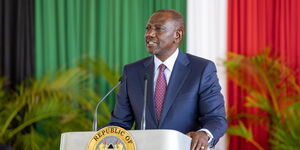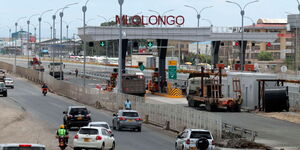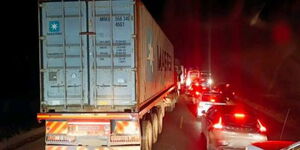The National Treasury has unveiled plans to introduce the Motor Vehicle Circulation tax, which will apply to all vehicle owners in the country.
According to the 2024 Budget Policy Statement that was tabled in Parliament and obtained by Kenyans.co.ke, the government is targeting to raise revenue through the enforcement of the wealth tax.
As outlined in the 172-page document, the tax will be set at a flat rate for all vehicles and an additional charge based on the engine capacity of the vehicle.
The Treasury outlined that the taxation would be progressive and is scheduled to be implemented between the upcoming financial year, 2024/2025, and the 2026/2027 financial year.
"The Government will introduce Motor Vehicle Circulation tax, in the medium term, on all motor vehicles based on a flat rate or on the engine capacity of the vehicle to improve progressivity. In the design of the tax, exemptions will be provided for certain categories of motor vehicles," read the policy statement.
How It Will Work
As detailed in the Treasury Medium-Term Revenue Strategy, the tax will be paid by vehicle owners annually.
In enforcement, the government will rely on the renewal of insurance policies as a mechanism to ensure the implementation of the tax.
"The Government will assess the viability of introducing Motor Vehicle Circulation Tax in the medium term as a form of a wealth tax. The tax will be paid annually by motor vehicle owners at the point of acquiring an insurance cover," read the review strategy document.
Meanwhile, the new tax strategy could prove expensive for some motorists given that the government is also gearing towards introducing toll stations on new highways in the country.
According to Transport Cabinet Secretary Kipchumba Murkomen, the money generated from the tolls will be used to boost and improve the country's infrastructure.
“To support the local economy, dualling and tolling of roads will be open to pension funds, local financial institutions and ordinary citizens through the stock exchange.
"Revenue from tolls can supplement government budgets and enable agencies to invest more in infrastructure without relying only on budgetary allocations," the CS explained.
One of the notable highways which is poised to be tolled is the Nairobi - Mombasa Highway whose construction will commence in the 2026-2027 Financial Year.












